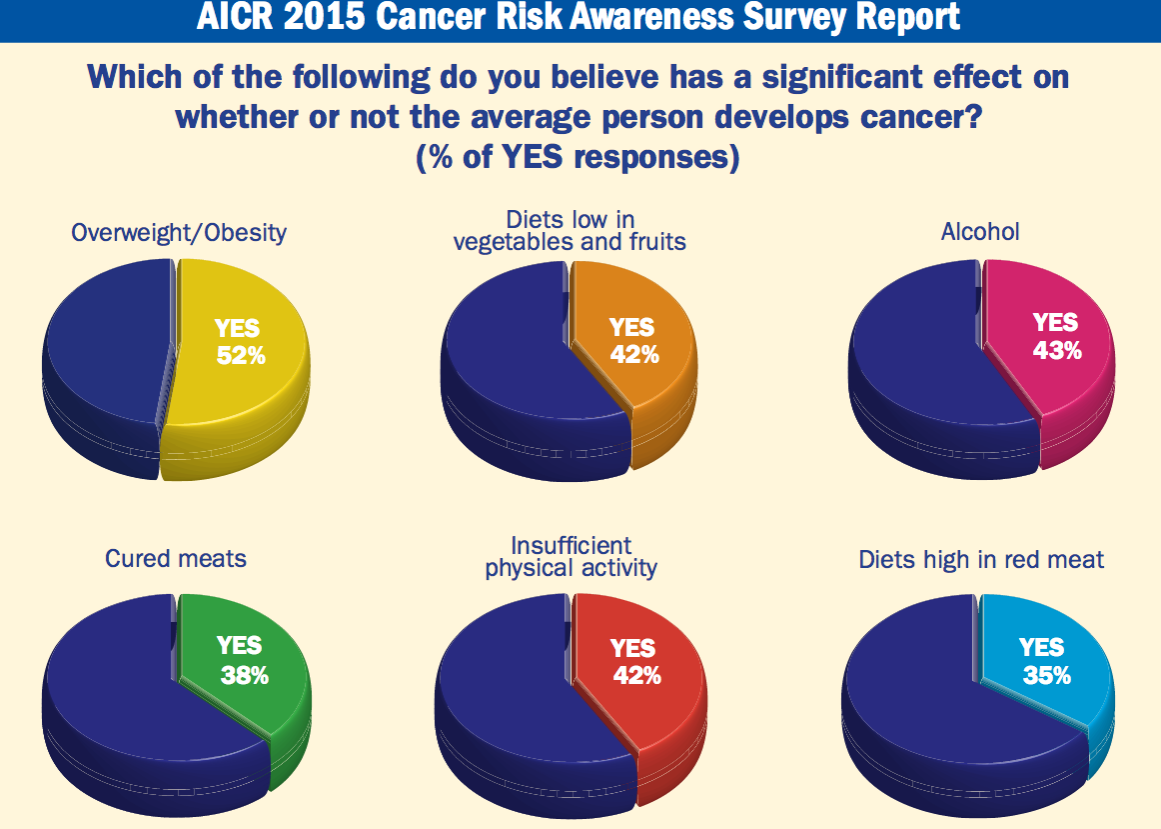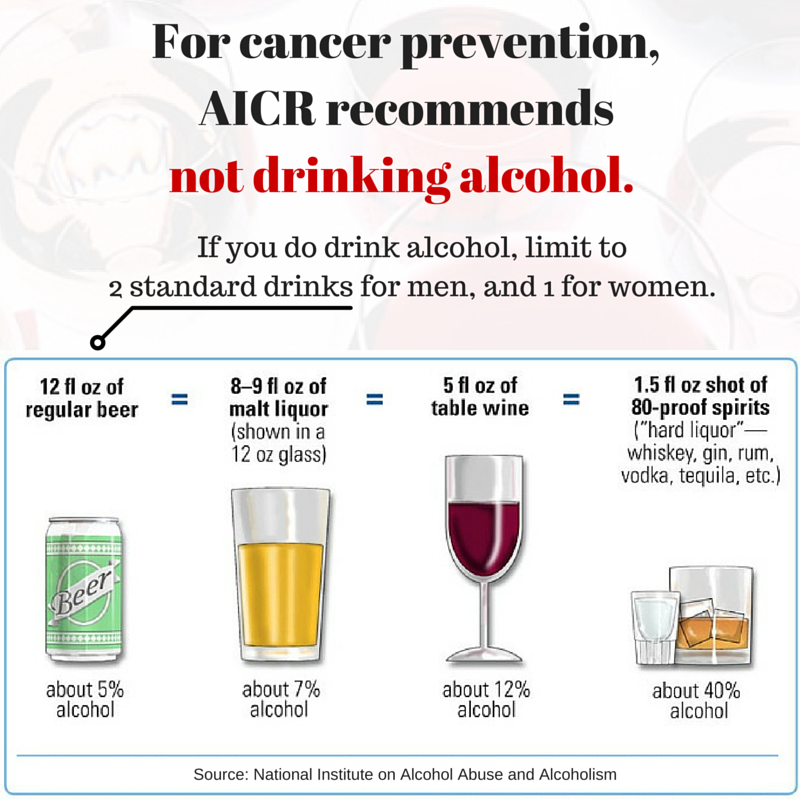AICR’s evidence clearly and consistently shows that alcohol is linked to increased risk for several different cancers, which is why I was eager to attend the 17th Annual Alcohol Policy Conference near Washington DC.
In a session focusing on the alcohol-cancer link, Robert Pezzolesi, of the New York Alcohol Policy Alliance, led off by citing an AICR survey on the relatively low level of US awareness (43%) of the link between alcohol and cancer risk (below).
 Linda Bauld of Cancer Research UK spotlighted the problems facing the UK, which is experiencing historically high levels of alcohol consumption. She cited a very low level of awareness of the alcohol-cancer link (13%) in the UK. This was the unprompted figure, when respondents were asked to volunteer various cancer risks. But when respondents were specifically asked if alcohol was related to cancer – a methodology similar to AICR’s US survey – 53% were able to identify alcohol as a risk.
Linda Bauld of Cancer Research UK spotlighted the problems facing the UK, which is experiencing historically high levels of alcohol consumption. She cited a very low level of awareness of the alcohol-cancer link (13%) in the UK. This was the unprompted figure, when respondents were asked to volunteer various cancer risks. But when respondents were specifically asked if alcohol was related to cancer – a methodology similar to AICR’s US survey – 53% were able to identify alcohol as a risk.
Dr. Niyati Parekh of NYU is a nutritional epidemiologist who stressed the need to think of alcohol in the context of the whole diet. She co-authored a study, using data from the Framingham Heart Study, showing that adherence to AICR guidelines regarding alcohol and other aspects of diet markedly lowered cancer risk.
She urged the research and medical communities to take a step back and look at overall drinking patterns, noting that as the number of drinks a person has increases, their diet gets poorer.
 The conference had opened with a clear-eyed and comprehensive take on where the health promotion and disease prevention community stands with respect to alcohol, backed by solid, hard-won statistics.
The conference had opened with a clear-eyed and comprehensive take on where the health promotion and disease prevention community stands with respect to alcohol, backed by solid, hard-won statistics.
Diane Riibe of the US Alcohol Policy Alliance and Robert Brewer, who leads the alcohol program at the National Center for Disease Prevention and Health Promotion at the CDC, ticked off some sobering numbers.
- Alcohol is responsible for 88,000 US deaths a year. It’s the 4th leading cause of preventable death, and its economic cost, in lost productivity and healthcare costs, tops $249 billion a year.
- But the notion that the issues surrounding alcohol are solely related to addiction is false. Nine out of every 10 excessive drinkers (defined as 4 or more drinks in a sitting for women, and 5 or more for men) are not alcohol-dependent. Yet this kind of binge drinking, which peaks in young adults but is seen across the entire lifetime, is responsible for 54% of alcohol-related deaths, and 77% of alcohol-related economic costs.
- What works, Brewer said, is community-based efforts, like taxing alcohol. In fact, every 10% increase in price reduces consumption by 7% — this is significantly more than is seen with tobacco, because most consumers of alcohol are not addicted.
For more on alcohol and cancer risk, here’s AICR’s Recommendations for Cancer Prevention.






Is it all types of alcohol? Or just wine or beer or hard alcohol? And what is considered excessive? And is it bad for inflammatory cancer?